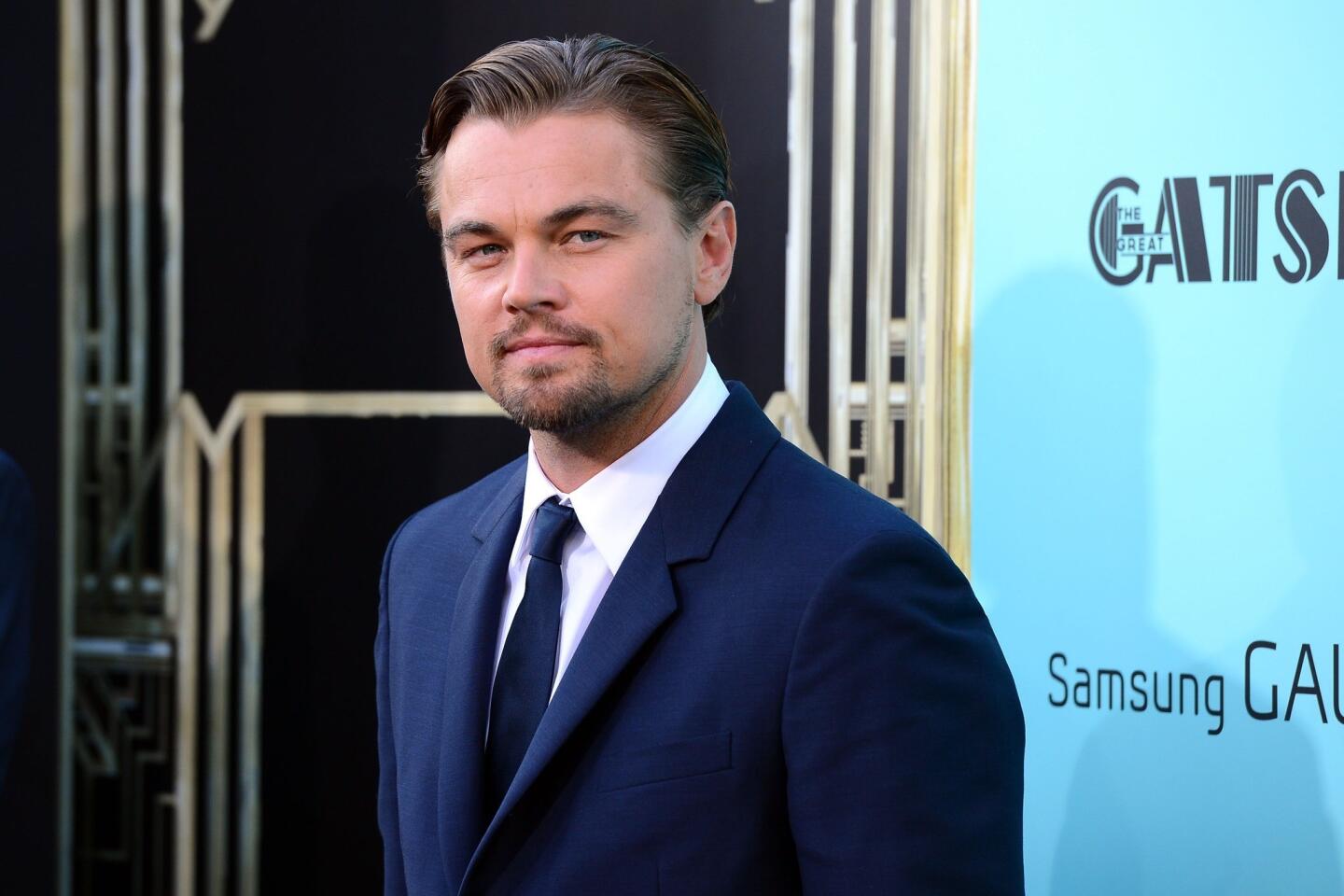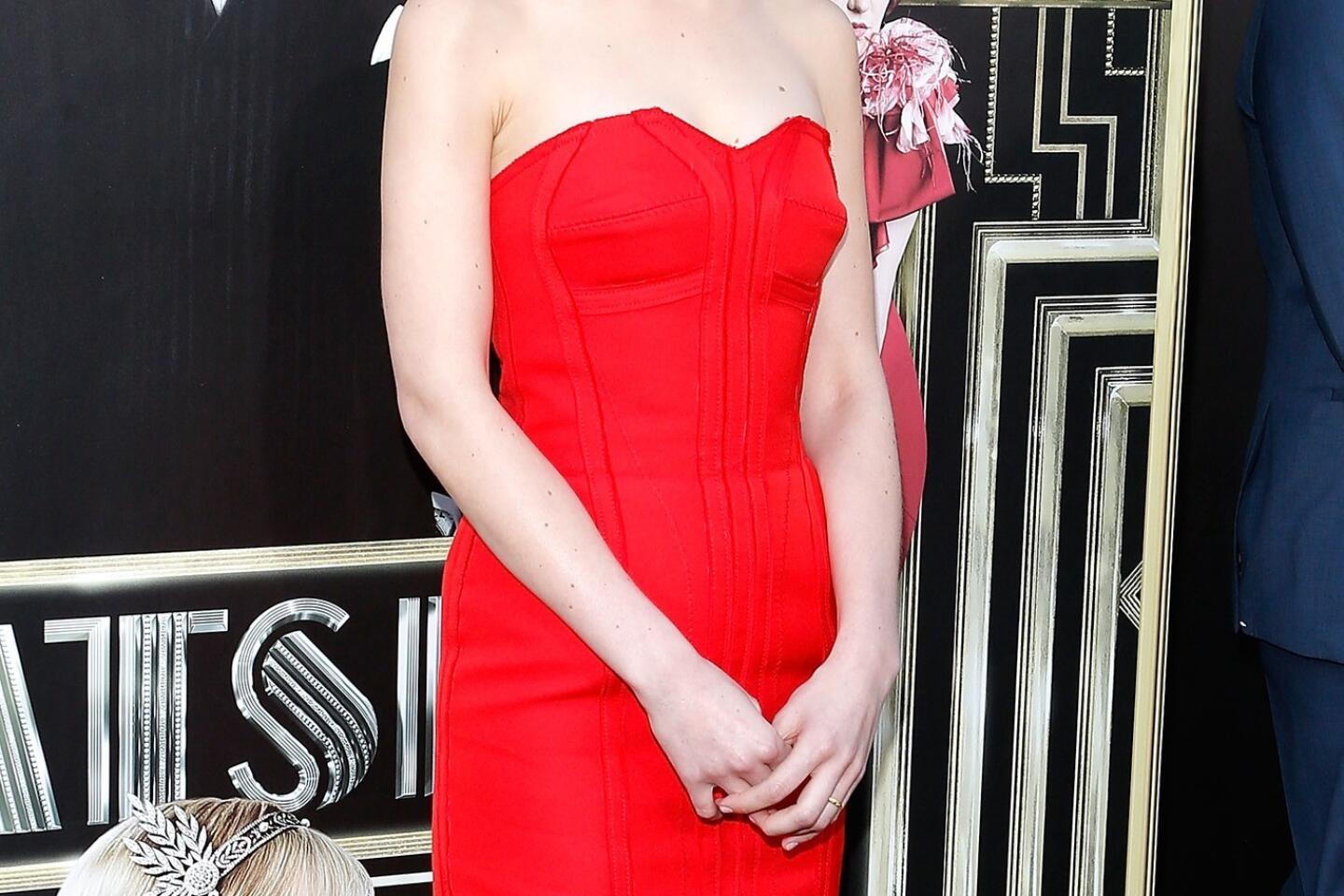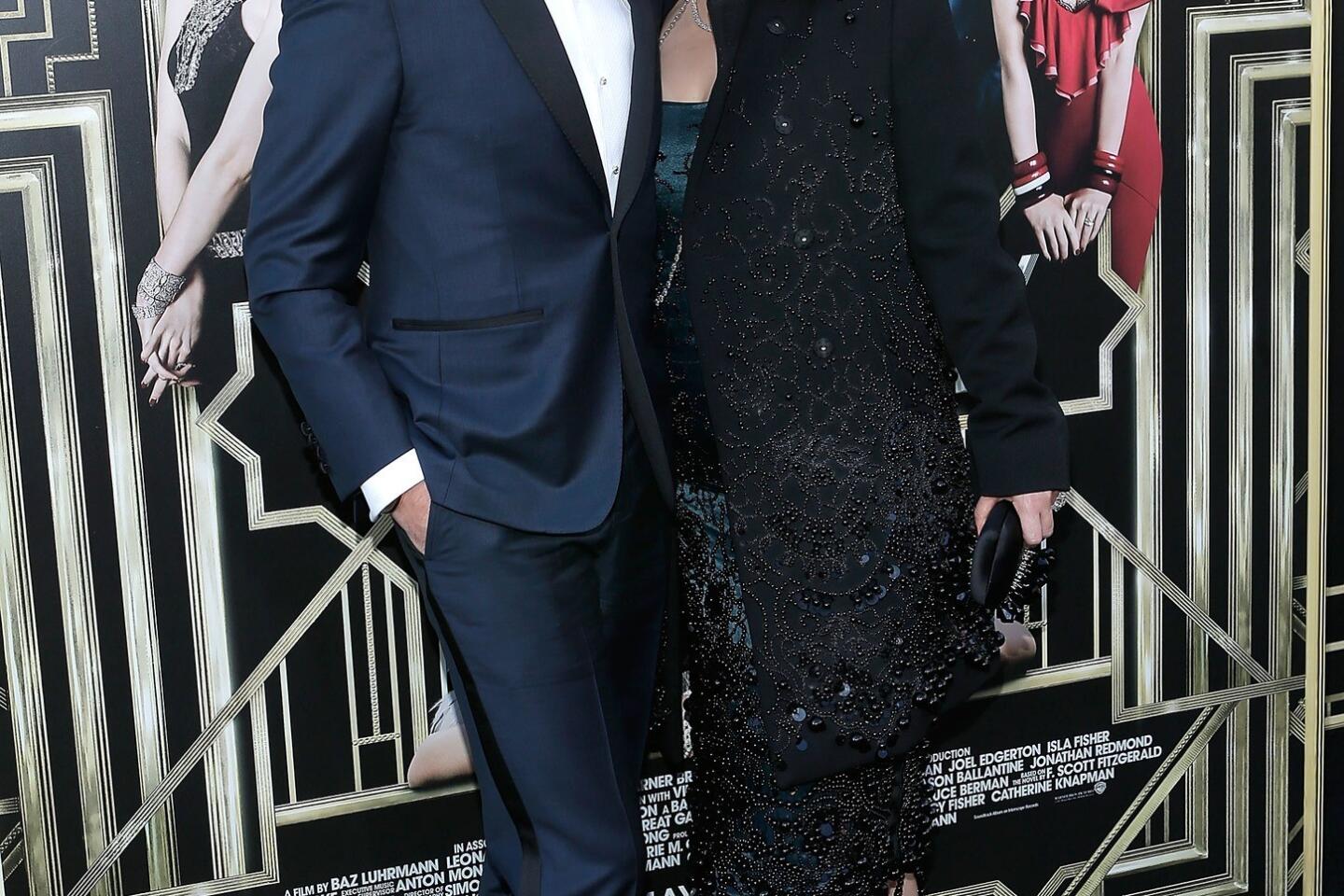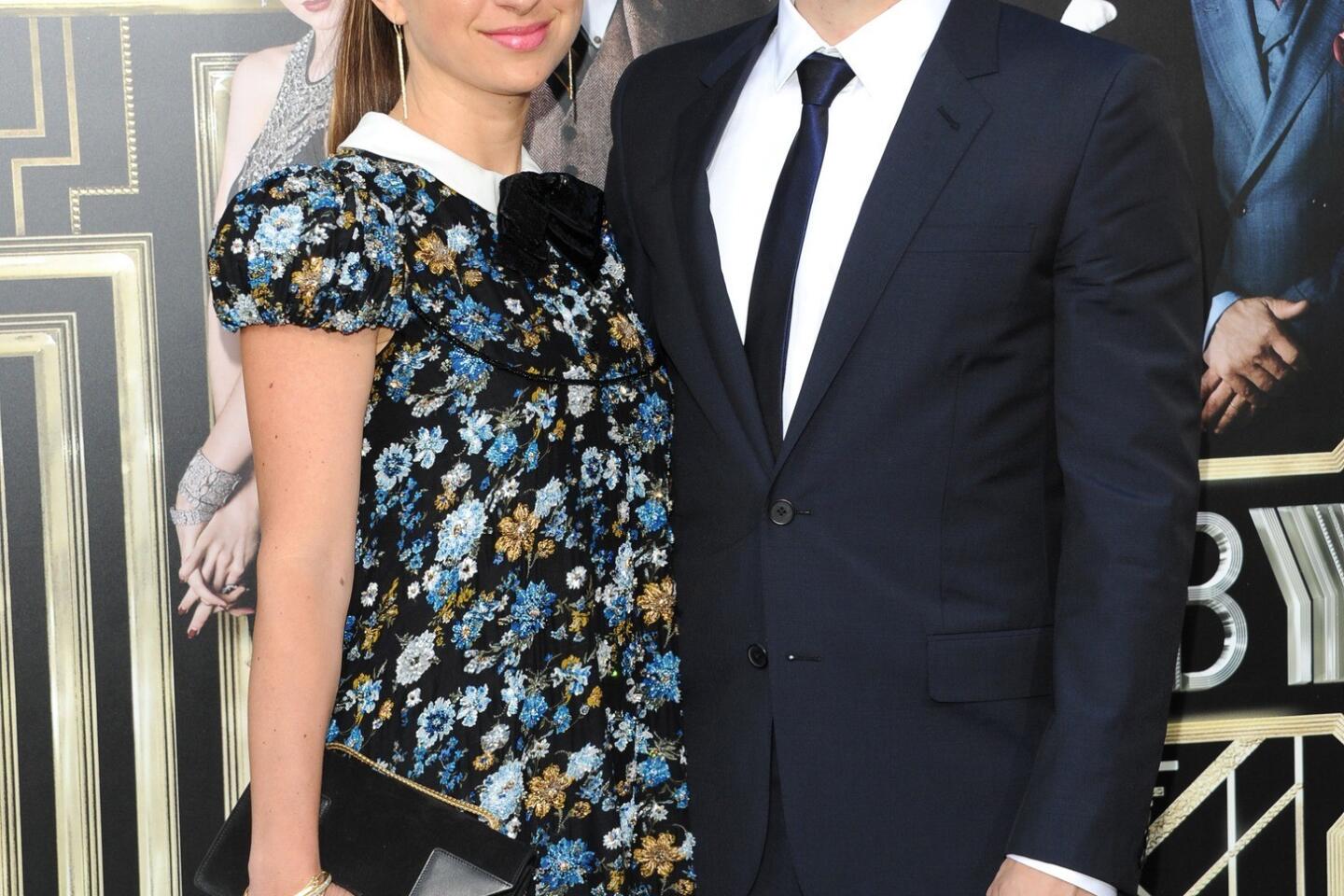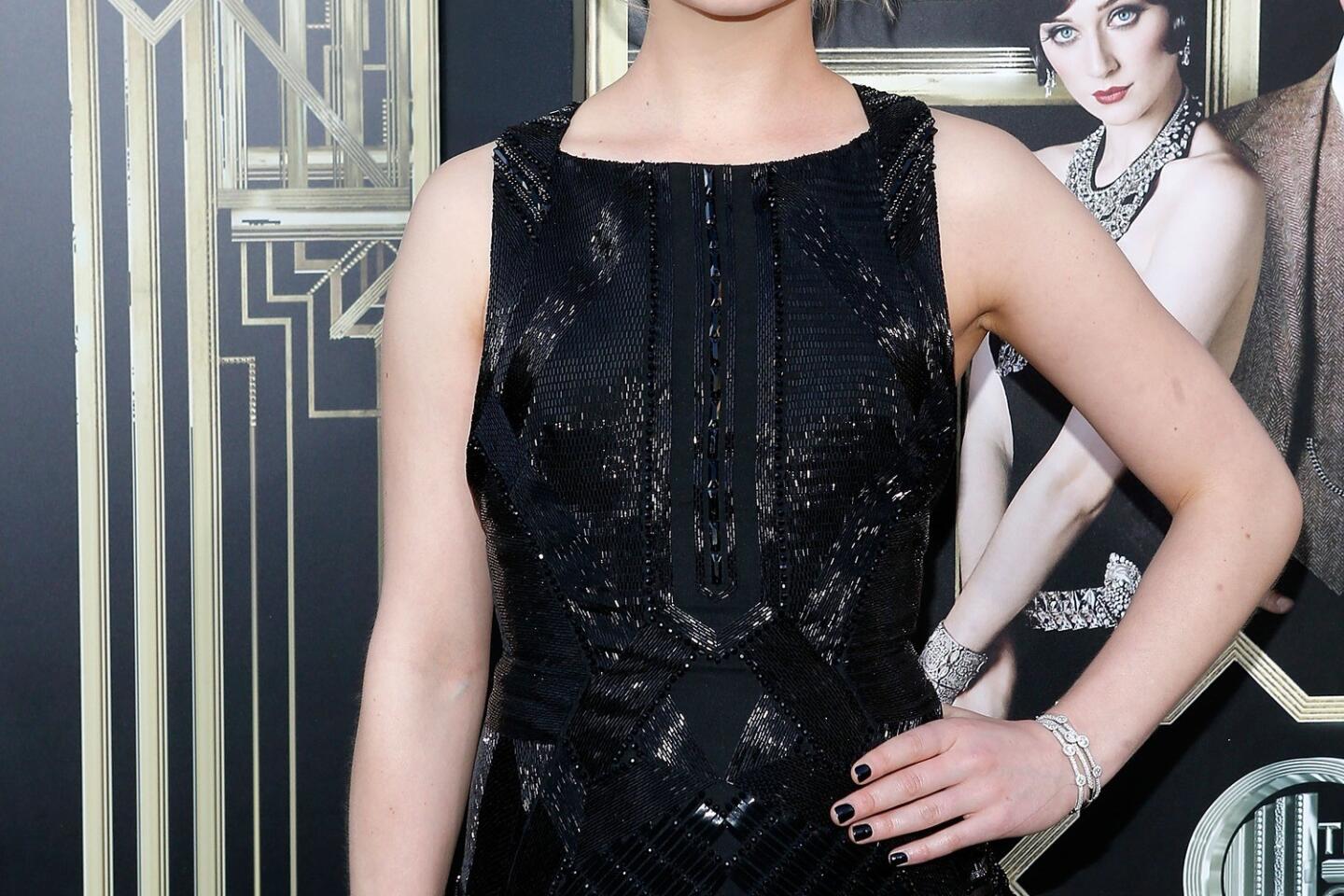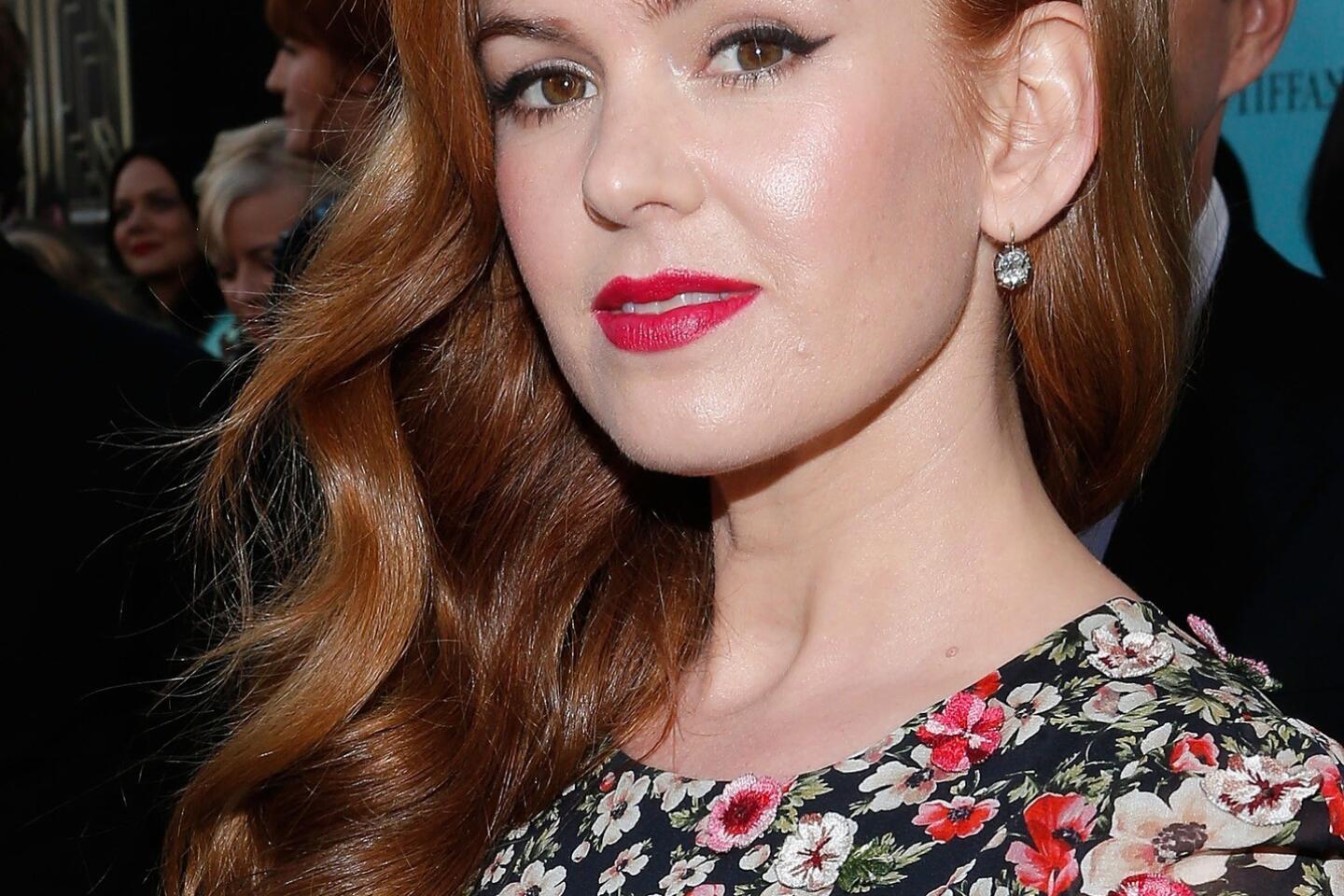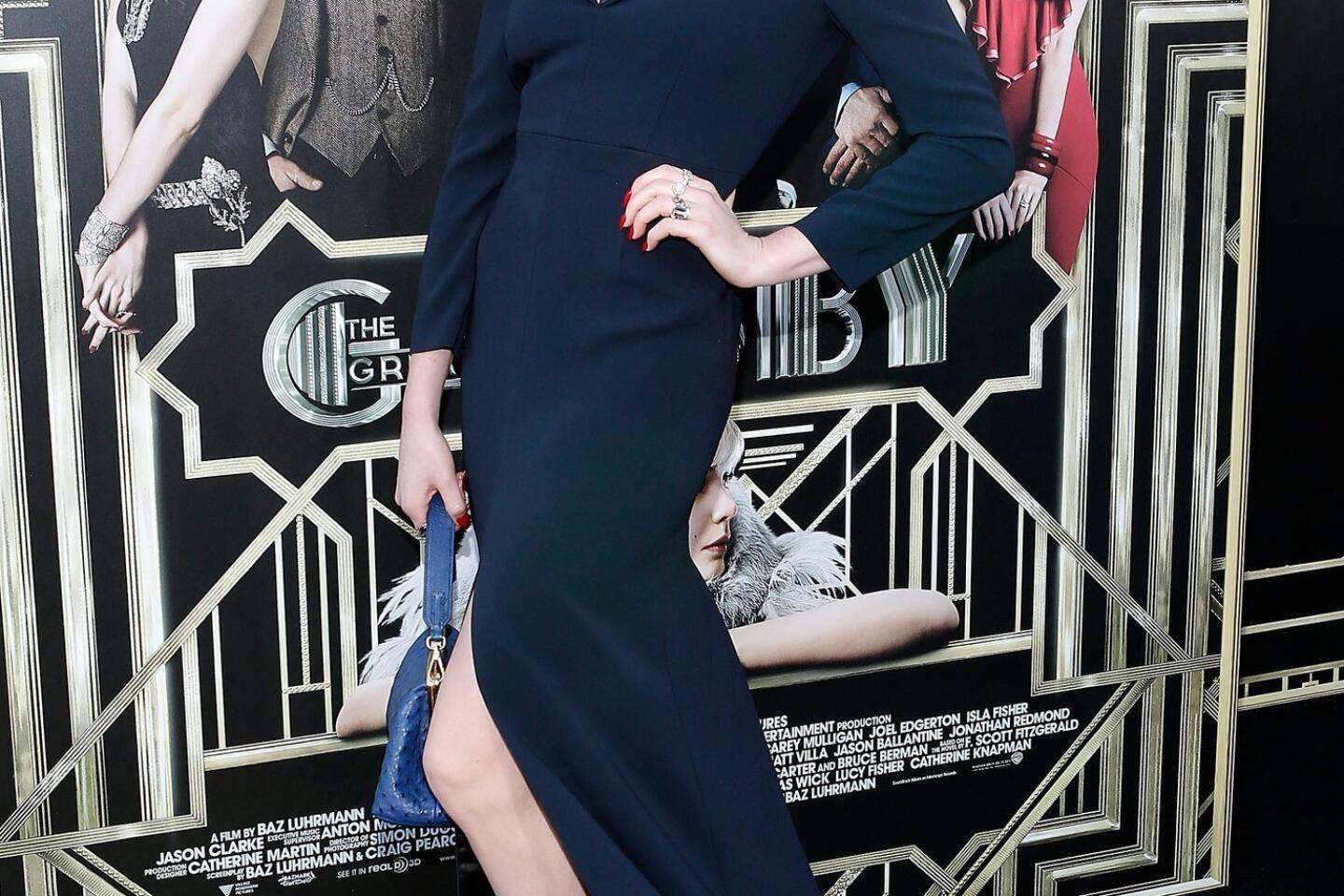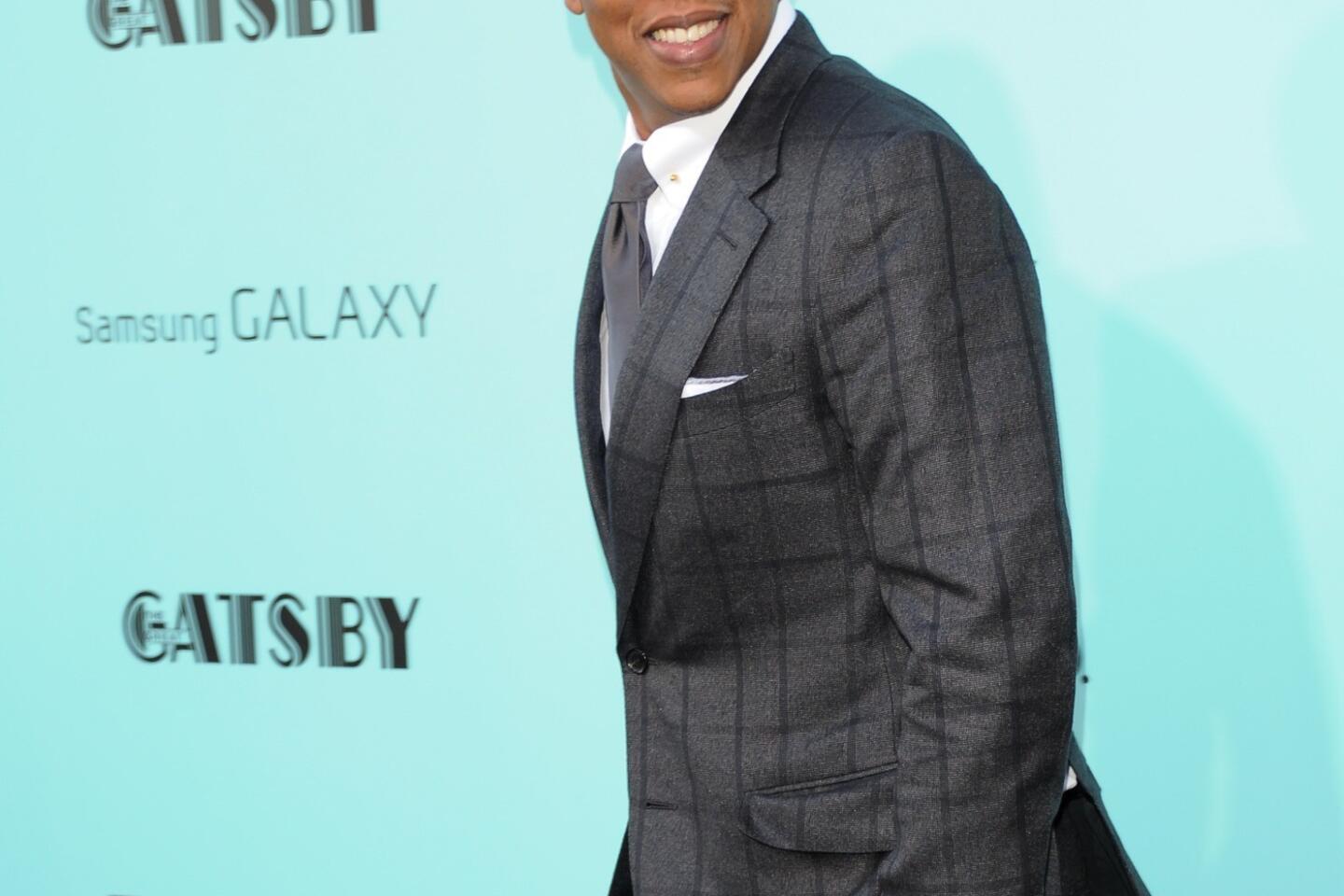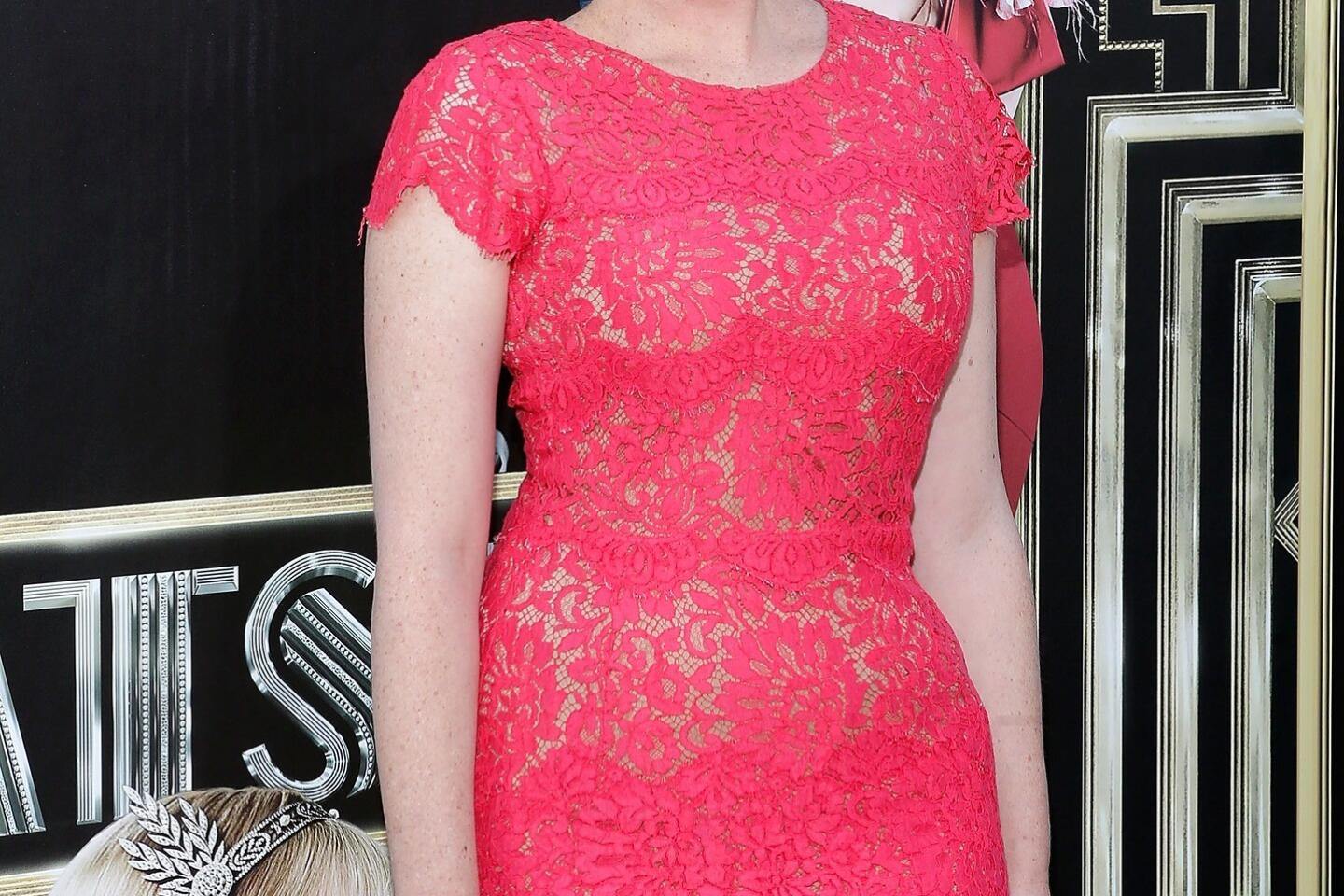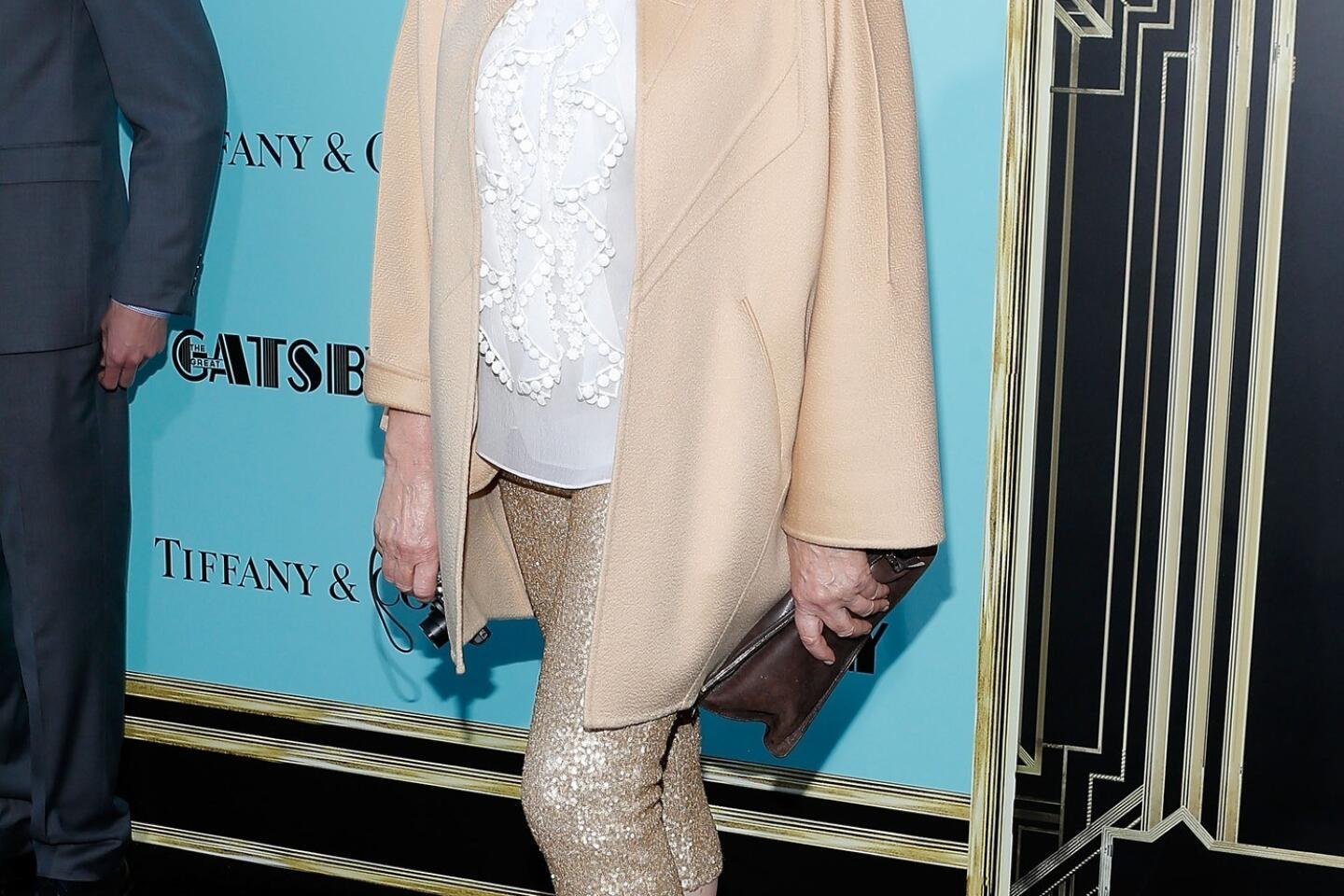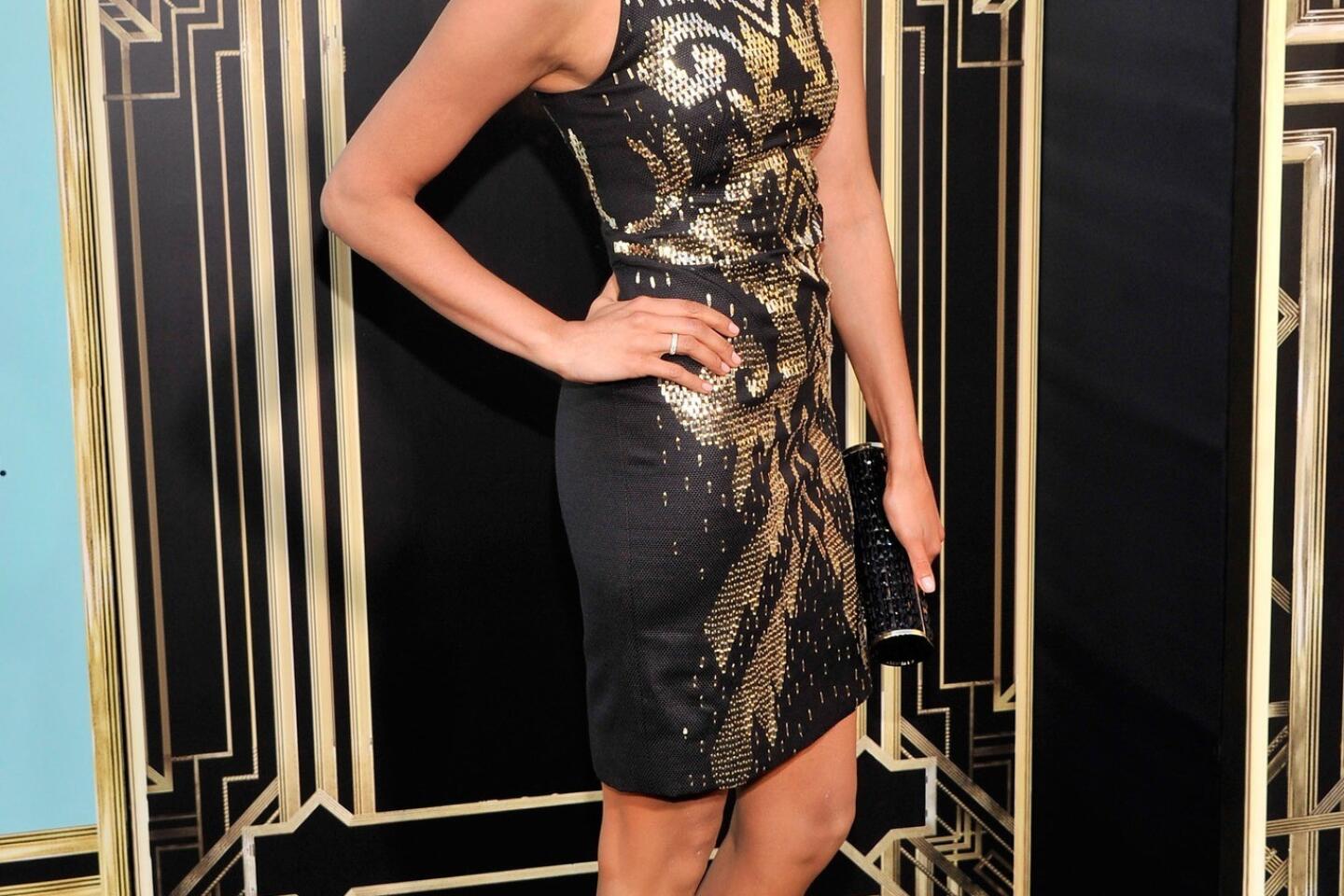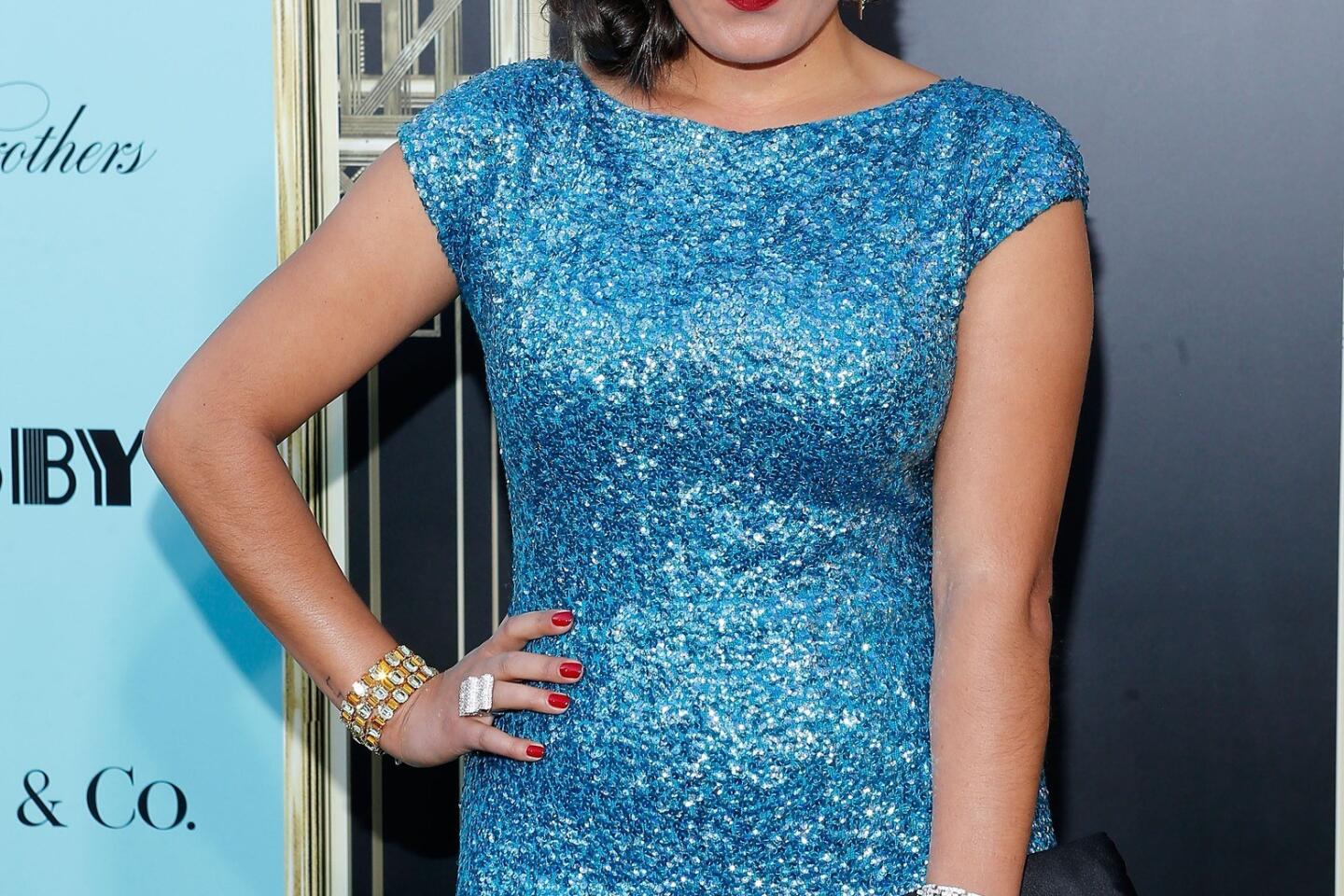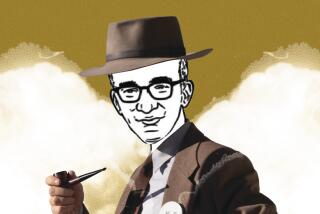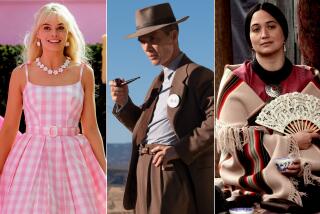‘The Great Gatsby’ glitters but is not gold, reviews say
Oscar Wilde wrote that moderation is a fatal thing, and Australian filmmaker Baz Luhrmann would seem to agree. Lurhmann, the director of such films as “Romeo + Juliet” and “Moulin Rouge!” is known for his visual flair, lavish production design and extensive pop culture sampling. His latest project has provided him with an expansive canvas for all three: a glittering big-screen adaptation of F. Scott Fitzgerald’s “The Great Gatsby” — in 3-D, no less.
Set in the world of the wealthy elites of Jazz Age New York, “Gatsby” would seem ripe for the full Luhrmann treatment, but according to many reviewers, the film ultimately comes off much like the people it portrays: stylish but shallow.
The Times’ Kenneth Turan writes that while the screenplay (by Luhrmann and Craig Pearce) remains largely faithful to the source, Luhrmann’s “filmmaking point of view suffocates beyond resuscitation any dramatic interest the story might have generated.” The film “too often plays as no more than an excuse to display [Luhrmann’s] frantic, frenetic personal style,” Turan adds, as the director and his team “pile on the spectacle and the glitter until we are gasping for air.”
Review: ‘Gatsby’s’ substance overwhelmed by Luhrmann’s style
Compounding the problem is that “Luhrmann’s direction of his actors cudgels every instinct of naturalness out of them,” although Leonardo DiCaprio, in the title role, does manage to survive the “onslaught of insincerity” as he “successfully calls on all his movie star charisma to become the film’s only person of interest.”
In the Village Voice, Stephanie Zacharek gives a mixed review and writes, “‘The Great Gatsby’ is both too much and what Luhrmann wants, less a movie version of F. Scott Fitzgerald’s novel than a movie version of Jay Gatsby himself. It’s an expressionist work, a story reinvented to the point of total self-invention, polished to a handsome sheen and possessing no class or taste beyond the kind you can buy. And those are the reasons to love it.”
Among the reasons not to love it: It’s “garish and over the top,” “the performers look lost in Luhrmann’s extravagant panorama,” and the film “seldom, if ever, captures that fierce delicacy of feeling Fitzgerald packed into every sentence.”
Christy Lemire of the Associated Press says that “Luhrmann would seem like the ideal director to bring F. Scott Fitzgerald’s story to the screen yet again, to breathe new life into these revered words.” Unfortunately, that’s not the case: “His ‘Great Gatsby’ is all about the glitter but it has no soul — and the fact that he’s directed it in 3-D only magnifies the feeling of artificiality. His camera rushes and swoops and twirls through one elaborately staged bacchanal after another but instead of creating a feeling of vibrancy, the result is repetitive and ultimately numbing.”
PHOTOS: ‘The Great Gatsby’ premiere
She adds, “Luhrmann’s ‘Gatsby’ doesn’t get the fact that the book was intended as a critical look at a crumbling dream. It gets too caught up in the buzz of the party.”
The Chicago Sun Times’ Matt Zoller Seitz begins his review with faint praise, declaring, “Baz Luhrmann’s adaptation of ‘The Great Gatsby’ isn’t a disaster.” He adds that “Every frame is sincere” and “Even when the movie’s not working, its style fascinates. That ‘not working’ part is a deal breaker, though — and it has little to do with Luhrmann’s stylistic gambits, and everything to do with his inability to reconcile them with an urge to play things straight.”
Seitz does agree with Turan that amid the chaos, “DiCaprio’s Gatsby is the movie’s greatest and simplest special effect: an illusion conjured mainly through body language and voice.”
Amid the lackluster reviews, A.O. Scott issues a minority report, writing, “despite what you may have heard, it is an eminently enjoyable movie.”
Advising viewers to set aside any literary baggage, Scott makes his case: “‘Gatsby’ is not gospel; it is grist for endless reinterpretation. Mr. Luhrmann’s reverence for the source material is evident. He sticks close to the details of the story and lifts dialogue and description directly from the novel’s pages. But he has also felt free to make that material his own, bending it according to his artistic sensibility and what he takes to be the mood of the times.”
Scott continues, “The result is less a conventional movie adaptation than a splashy, trashy opera, a wayward, lavishly theatrical celebration of the emotional and material extravagance that Fitzgerald surveyed with fascinated ambivalence.”
Mr. Wilde, at least, would be proud.
ALSO:
Baz Luhrmann wants to ‘reveal’ more of ‘The Great Gatsby’
F. Scott Fitzgerald’s take on ‘Great Gatsby’ movie rights? $16,666
Baz Luhrmann’s ‘Gatsby’ hears hip-hop where Fitzgerald heard jazz
More to Read
Only good movies
Get the Indie Focus newsletter, Mark Olsen's weekly guide to the world of cinema.
You may occasionally receive promotional content from the Los Angeles Times.
